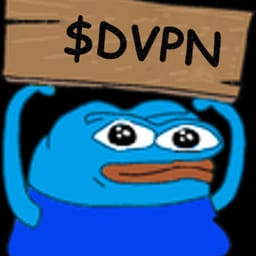dVPN and the DePIN Narrative

Decentralized virtual private networks (dVPNs) are an emerging technology that aligns closely with the DePIN movement. DePIN stands for decentralized personal information management and refers to giving individuals more control over their personal data and digital identity.
Decentralized VPNs empower users by enhancing privacy, security, and anonymity during internet use. This article will provide an overview of decentralized VPNs, explain their technical architecture, explore key benefits over traditional VPNs, and analyze how they support the goals of the DePIN narrative by returning control over personal data to end users.
What are Decentralized VPNs?
A virtual private network (VPN) extends a private network across a public network to provide secure remote access. VPNs tunnel internet traffic and obscure user identity by masking IP addresses. Traditional VPNs rely on centralized servers owned by VPN providers.
In contrast, decentralized VPNs have no central point of control or failure. Instead, they leverage peer-to-peer and blockchain technologies to create global networks where each node forwards encrypted traffic on behalf of others.
Sentinel and it’s partners are leading the way in the decentralised VPN space.
Technical Architecture
The technical architecture behind decentralized VPNs varies across implementations but generally utilizes multilayer encryption, decentralized node networks, tokenized payment rails, and open source code.
User clients connect to node relays that tunnel traffic through multiple hops in the network. Nodes match supply and demand using on-chain token payments that compensate node operators for bandwidth costs.
Cryptography secures data in transit end-to-end. Total decentralization removes centralized servers as attack vectors, enhancing privacy and circumventing censorship.
Benefits of DVPNs over Traditional VPNs
Decentralized VPNs provide significant advantages over mainstream VPN alternatives:
1. Enhanced privacy and anonymity
The absence of centralized servers removes singular points of failure, like company data breaches, that could publicly expose user identities or behavior patterns. This makes tracking and profiling individuals much more difficult.
2. Censorship resistance
There are no central network control points that authorities can easily block to censor content or communications for some users. This allows users to circumvent restrictions on access.
3. Improved security
Multi-layered encryption schemes plus decentralized infrastructure raise the difficulty bar extremely high for any potential attack vectors or unauthorized access attempts to user data. Breaches become implausible.
4. Transparent code audits
Public open source code bases encourage external community review that can identify and resolve vulnerabilities or functionality issues. This transparency builds integrity.
5. No user data logging
The decentralized nature of these systems implies that even if infiltrated, individual VPN nodes would not have access rights to centrally record or extract user activity logs. They lack big data profiles.
6. Lower costs
Token-incentivized bandwidth sharing means nodes earn payouts for offering network capacity to other users. This reduces infrastructure costs significantly compared to traditional VPNs.
7. Flexible network scaling
The peer-to-peer architecture of decentralized VPNs allows the network to easily scale capacity up or down as needed by adding or removing nodes. This makes the network more adaptable to fluctuations in consumer demand.
8. Contributor incentives
Many networks incentivize VPN node contributors by distributing tokens according to uptime and bandwidth shared. This decentralized model rewards users who provide value to the network.
9. Enhanced resilience
The distributed nature of nodes globally across decentralized networks makes them extremely resilient to outages, as many nodes would need to go offline before impacting connectivity. This adds reliability.
10. User sovereignty
Absence of administrative access rights on the network puts users fully in control of virtual private networking needs and their connectivity experience. Users rely on no centralized third parties.
How Sentinel Aligns with DePIN Goals
Decentralized VPNs like Sentinel strongly support DePIN goals of personal data sovereignty, privacy, and user empowerment.
This includes:
1. Putting users in control
Decentralized VPNs use peer-to-peer nodes to remove central oversight of network operations and user access. This structure directly empowers users with control and ownership of their connectivity, traffic, and network activity. Community governance upholds individual agency.
2. Identity Protection
By encrypting data flows, decentralized VPNs bolster protections around online handles, usernames, and other personal identifiers vulnerable to tracking. This strength reduces exposure risks from data breaches and mass surveillance that undermine identifier safety.
3. Communications Security
Multi-layer encryption schemes implemented by nodes create secure tunnels shielding user traffic and sensitive data from exploitation, spying, or unauthorized access. Personal communications and information remain private.
4. Interoperable Privacy
Adherence to leading security standards lets decentralized VPNs integrate seamlessly with other privacy-first web tools for robust unified privacy. Users can manage their privacy presence across the decentralized ecosystem.
5. Distributed Data Custody
Absent central data aggregation points, user data Gets distributed across independent nodes in the network. This reduces mass collection risks associated with centralized architectures. User data stays partitioned.
6. Responsive Networks
The peer-to-peer structure of decentralized VPNs allows the network bandwidth and capacity to scale up or down dynamically based on real-time user demands. As more users come online, node incentives bring more resources to meet their needs. This creates a user-focused environment.
7. Transparent Trust
Absent intermediaries, node interactions occur through open autonomous software protocols. This drives radical transparency between participants by removing subjective human middlemen. Objective proof of behavior enables inherent accountability.
8. Unlimited Access
By protecting privacy and promoting an open internet, decentralized VPNs provide unlimited access to web resources without imposing subjective filters. Users can access anything without policy limitations constraining activities. More freedom drives usage choice.
9. Financial Accessibility
Token-based rewards incentivize supplying bandwidth which funds free user access models. More affordable access allows wider user adoption. This makes secure connectivity financially reachable for more participants.
10. Wider Community Benefits
Beyond personal use advantages, decentralized VPNs enable safer participation in digital public discourse and access to uncensored information flows. This supports stronger democracies and the realization of digital civic rights, leading to positive impacts that benefit whole communities.
Real-World Use Case: Bypassing Media Censorship
A major real-world use case is overcoming state censorship of news and political content. In authoritarian countries, access to independent media is routinely blocked. Mainstream VPNs also face routine blocking or hacking from government cyber programs.
Decentralized VPNs present a more reliable solution. By leveraging peer-to-peer connections and encryption, they provide solid access to censored content. Monitoring user activity and identification becomes very challenging.
Decentralized VPNs like Sentinel are already helping users to unlock restricted web access and surveillance in places like China, Russia, Turkey and Iran. Their success shows the potential to shift control of personal data back to regular citizens living under repressive regimes where privacy matters most. By distributing control, the technology returns power to the users.
Final Thoughts
Decentralized VPNs are an emerging privacy technology that reduces exposure and centralization of user data. They align strongly with DePIN principles by enhancing personal control over identity, activity, and information routing.
As decentralized VPN projects continue maturing, they may form an integral component of an interoperable decentralized technology stack that returns ownership over personal data to individuals. Their real-world traction also spotlights the appetite for decentralized and user-first alternatives to legacy systems across the Internet and digital economy.

Join Our Journey
At dVPN.news every member of the Sentinel community is a contributor. Whether you're writing articles, sharing tutorials, or participating in discussions, your involvement is what drives our collective growth, and best of all it's rewarded! Together, so if you to contribute to the growth of the Sentinel Network, you are in the right place!

Connect with Us
Stay in touch and be part of our growing community:
- Follow Sentinel on X (Twitter)
- Follow The Growth DAO on X (Twitter)
- Join The Growth DAO community Telegram Group






